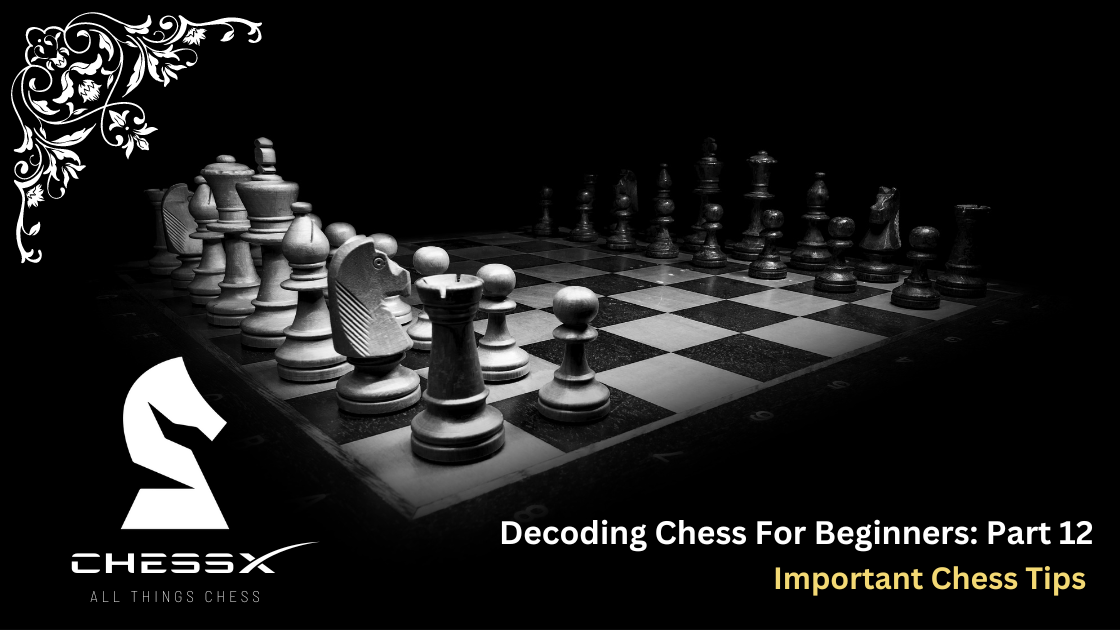Decoding Chess for Beginners: Important Chess Tips


In the twelfth installment of the Chess for Beginners series, we will discuss Must Know Important Chess Tips. We encourage you to read the complete blog to gain the most from this discussion.
Now that you are geared up for the tournament, We have outlined some tips that can help you win the game and become a stronger chess player in this blog.
Let's go over them in detail.
Memorize openings
In the earlier stages of this book, we discussed numerous chess openings along with their advantages and disadvantages. Did you know that most tournament players use these openings? Knowing this, it is an excellent idea to memorize these openings by heart.
This will give you insight into how your opponent may structure their offense, enabling you to strategize your defensive or offensive moves effectively.
Assess your opponent’s move
When your opponent makes a move, refrain from an immediate response. Take the time to assess and understand the rationale behind your opponent's move. This will provide a clear idea of their strategy, allowing you to plan your subsequent moves accordingly.
Make the best move
Sometimes, there may be more than one good move. Understand which move is the best option for you by weighing the pros and cons of each available option. To identify the best move, consider questions such as:
- Can you think of another move that improves your piece's position?
- Is there a possibility of enhancing your position by choosing a different piece to move?
- Will you effectively counter your opponent's threat with this move?
- Will the piece you choose to move to be in a safe square with this move?
Choose the move that provides satisfactory answers to these questions; it is the best option available to you.
Have a plan in place
Winning a chess game is not about making random moves and relying on luck. You need a proper plan for all your moves, ensuring relevance between them. Base your plan on the principles behind various chess openings.
Avoid switching between multiple plans in a single game, as this can lead to a loss of clarity, giving your opponent a significant advantage. Stick to your plan for a strategic and well-thought-out approach to the game.
Understand the Value of Your Pieces
As discussed in a previous blog on piece quality, it is crucial to grasp the worth of your pieces throughout different stages of the game. Avoid trading high-value pieces for those of lower value.
Consider the implications of losing a piece before making a move and always keep the value of each piece in mind.
Develop Your Pieces Early and Strategically

With the clock ticking, early development of your pieces becomes paramount. Failing to capitalize on this opportunity may allow your opponent to launch a formidable attack. A common mistake, especially among beginners, is overly focusing on pawn development.
While pawn formation is essential, an excessive emphasis on pawn movement can distract from developing other crucial pieces.
Have a Purpose for Every Piece Development
Avoid developing any piece without a clear purpose. Every move should contribute meaningfully to your overall strategy. Developing a piece without a solid reason is unlikely to benefit you and may leave you at a disadvantage. Always ensure that each piece's movement serves a purpose in advancing your position.
To access the entire blog, subscribe to our premium plans today and elevate your chess game to the next level. Get ChessX for all things chess